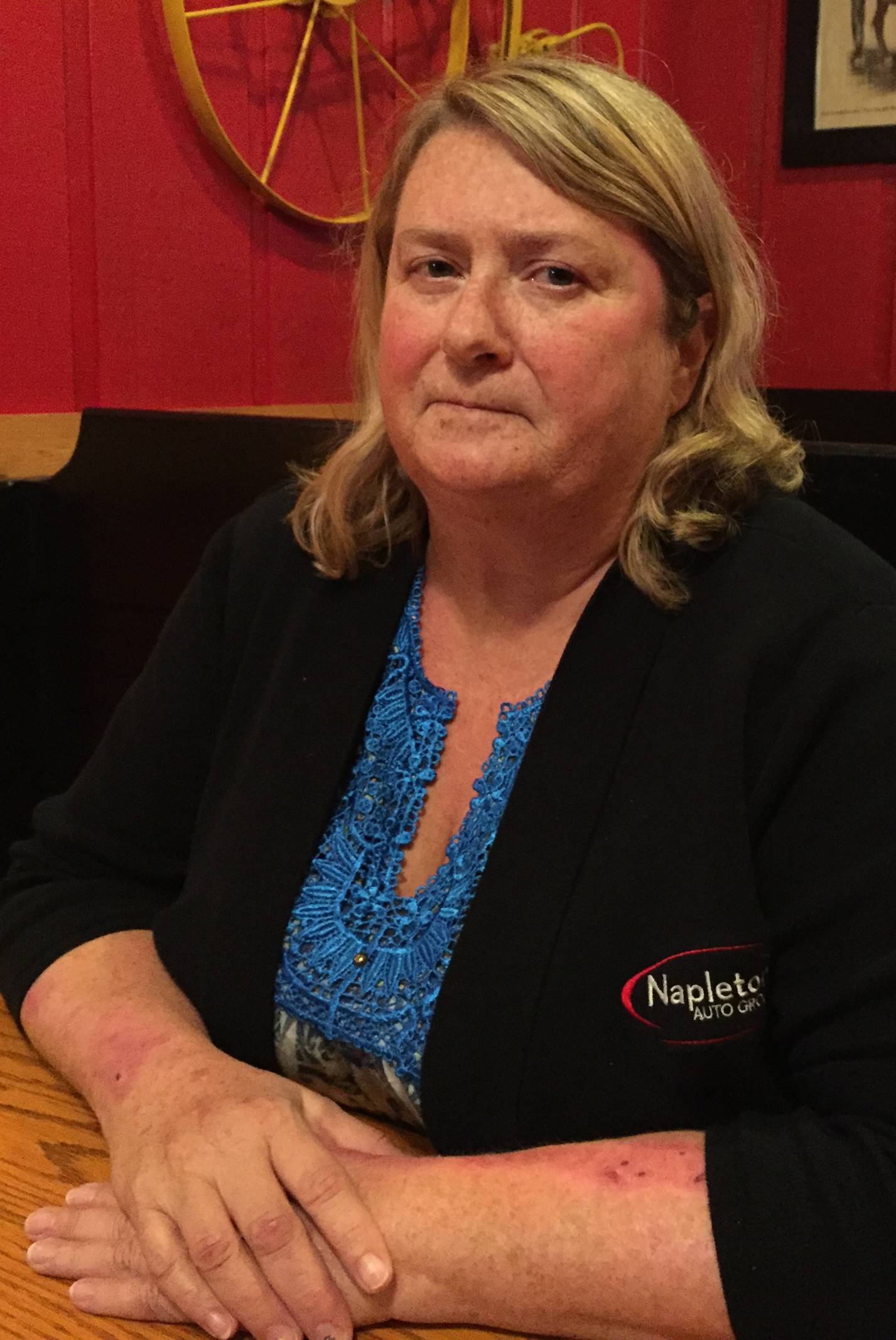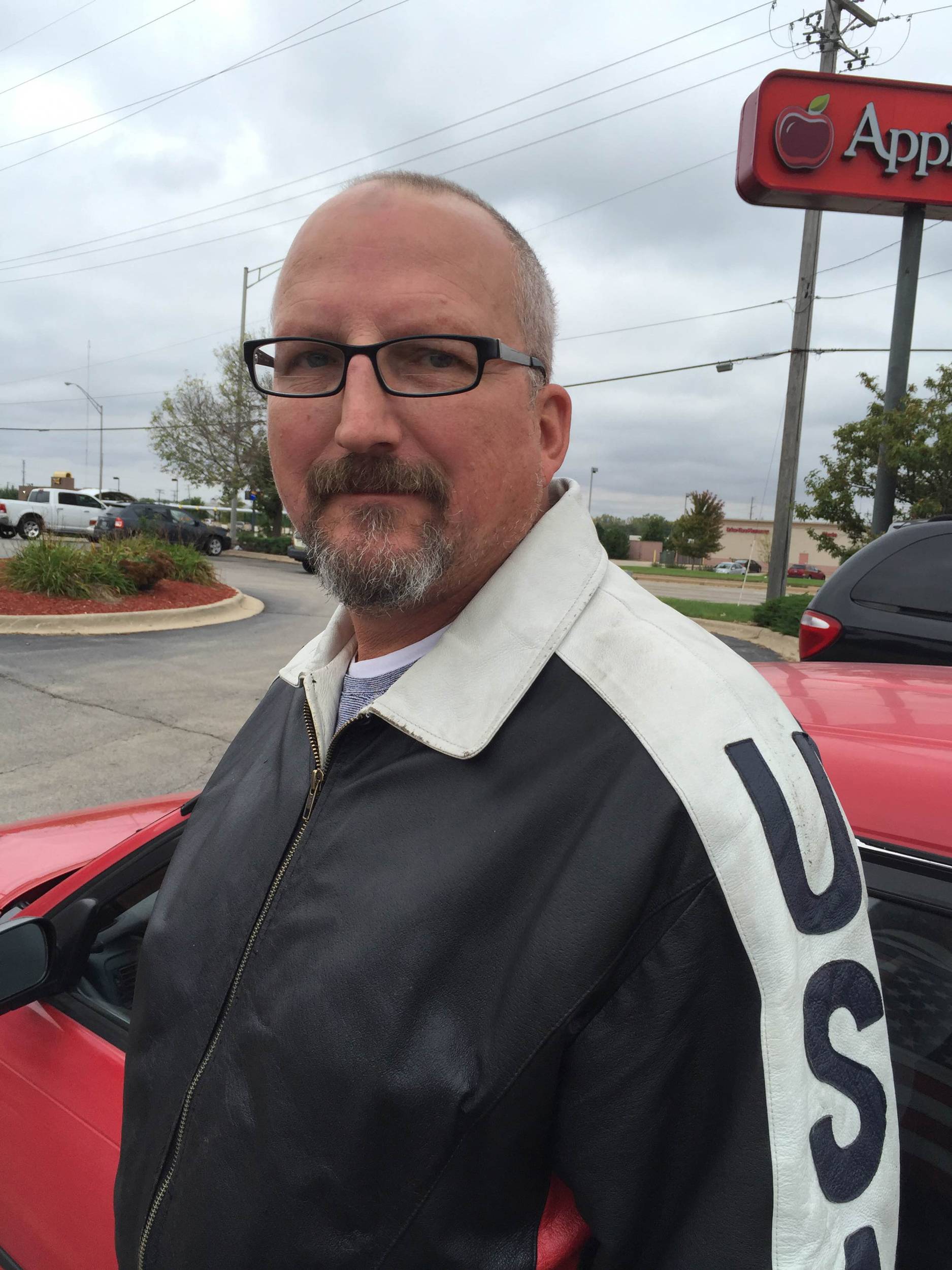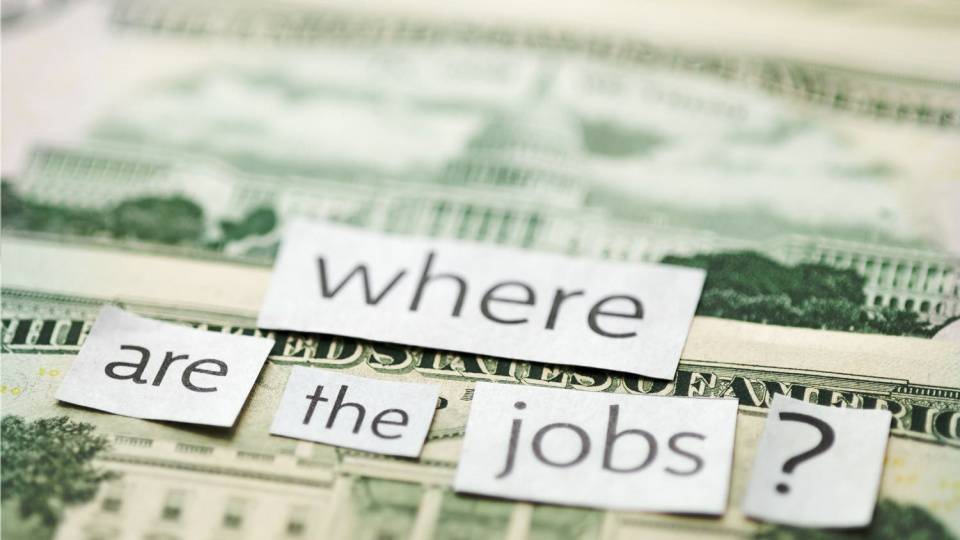One evening last week, Cathy McClure slid into a booth at the Machine Shed, a farm-themed restaurant near Interstate 90 in Rockford, Ill. She had just finished work at a nearby car dealership and she had a story to tell – the tale of what had happened to her and to her city in this halting economic recovery.
During the recession, the forklift company where she worked as a fleet manager shut down after being acquired by a firm in the Netherlands. The job had paid her $22 (U.S.) an hour and took her all over the country – California, Texas, Louisiana. After she was laid off, she was out of work for two years and nearly exhausted her unemployment benefits.
Then she landed her current job. It began as a part-time gig and eventually turned into a full-time position, where she is now paid $14 an hour. The drop in her pay forced new habits: To buy groceries, she visits three different supermarkets to find the lowest prices on the items she needs. She uses the proceeds from an annual garage sale and holiday gift cards to scrounge together the odd vacation. Still, she considers herself fortunate.
It's not my first time meeting Ms. McClure: Back in 2010, we talked at a fair for job-seekers in this city on the Rock River, 150 kilometres west of Chicago. I have returned to Rockford to find out what happened to people such as her to better understand the economic anxieties affecting Americans on the eve of the presidential election.
Ms. McClure is typically a Democrat. She would like to see a woman become president. Donald Trump scares her. But as of last week, before a video emerged that roiled the race, she was undecided about how to vote. "We need to do something about bringing back some of our jobs," she says. Indeed, she has a modest proposal for the chief executive officers of American companies who outsource jobs to other countries. If they move factories abroad: "They should live over there," says Ms. McClure, 58.
In this bitter and exceptional campaign, the state of the economy has played a starring role. Mr. Trump, the Republican nominee, says he can return the country to an age of economic glory by cutting taxes and ripping up trade deals. Hillary Clinton, his Democratic rival, has pledged to create new, well-paying jobs through a major infrastructure push, investments in alternative energy and help to small businesses.
Judging from Mr. Trump's rhetoric, the U.S. economy is in a world of trouble. That's far from true. The United States has regained all of the jobs it lost in the Great Recession, when nearly one in six workers became unemployed. The national jobless rate is hovering near 5 per cent, a figure that economists consider close to full employment, and the economy has grown for 88-straight months, one of the longest expansions on record.
Yet beneath those headline statistics, there is a reservoir of discontent. To understand why, just visit a place like Rockford, which was once a manufacturing powerhouse whose factories churned out machine tools, furniture, airplane parts and automobiles. The multitude of bolts and fasteners it produced earned it the nickname the "screw capital of the world."
Today it's home to 150,000 people and, even though the economy is undeniably healthier than it used to be, the recession left major scars, both financial and psychological. The unemployment rate has fallen from a sky-high 17 per cent to about 6 per cent. All of the job-seekers I met six years ago are working again. But all of them have taken major cuts in pay, ranging from one-third to one-half of their prior wages. They have fewer benefits than in the past and feel a keen sense of precariousness about their working life.
'Treading water'
When you listen to people in Rockford, it becomes apparent that the economic anxiety that is now prevalent isn't about finding a job. Instead, it's about finding a good job – one that pays well and provides for a middle-class standard of living. That worry gets to the heart of the weaknesses of this economic recovery.
While the national unemployment rate has fallen considerably, underlying problems remain. Across the United States , there are 14 million people who are either out of work or stuck in part-time jobs when they would prefer to be working full-time.
Meanwhile, the proportion of Americans participating in the labour force has not returned to prerecession levels. In other words, there are a number of workers who have dropped out and are no longer looking for work at all (people who have left the labour force aren't counted in the unemployment statistics). About two million workers are effectively missing, according to the Economic Policy Institute, a liberal think tank.
It's only in the past two years that the growing economy has begun to boost the income of a wide swath of American families. Last year, the median household's income grew 5.2 per cent to $56,500, adjusting for inflation. That's the biggest annual jump since the government began tracking the figure. Yet, even with that increase, the median household's income is lower than it was in 2007, after adjusting for inflation, and perhaps even more importantly, lower than it was back in 2000.
"We have a decade and a half where lots of people have kind of been treading water," says Jared Bernstein, a senior fellow at the Centre on Budget and Policy Priorities and a former aide to Vice-President Joe Biden. "It would be a mistake to believe that a year or two of positive growth is going to wipe out the anxiety related to many more years of stagnation."
If you ask economists about the causes of that stagnation, they answer with a long list. There is the accumulated impact of technological change, the effects of globalization and trade, the weakening power of unions, the decline in worker productivity and the mismatch between the education people receive and the jobs available. "The anxiety is real and it's justifiable," says Diane Swonk, an independent business economist in Chicago. "But the reasons for it are complex and frankly don't fit into sound bites."
Gauging economic worries through polling can be tricky, since the answers tend to be tied to a person's political preferences. So, when a Democrat is in the White House, as now, Republicans express more pessimism about the economy. However, a recent analysis from Gallup suggests that Mr. Trump's supporters feel especially high levels of financial insecurity compared with their fellow Republicans. And a solid majority of Americans feel the economic system is unfair, albeit for different reasons. A recent poll conducted for the radio program Marketplace found that 62 per cent of those surveyed felt the economy was rigged in favour of certain groups.
'A beater with a heater'
For those who lost their jobs in the last recession, the frustration is especially acute. To get back to work, people almost always have to take a more junior position in their field, pushing them backward both in terms of earnings and their career trajectory. Economists call this phenomenon "wage scarring."
Gary Voigt lives with that reality every day. Five or six times a week, he works a shift as a security guard at a foundry south of downtown Rockford. To get there, he drives a car he calls "a beater with a heater," a 22-year old Toyota that he bought for $1,000 last year. It was all he could afford and he dreads the day that it breaks down.
Back when Mr. Voigt graduated from high school in 1977, jobs were plentiful in Rockford. But the city's trajectory took a sharp turn for the worse during the recession of the early 1980s. Local companies closed, moved or were sold and the unemployment rate soared to 25 per cent – a localized version of the Great Depression, notes Robert Evans, an economist at Rockford University. The city recovered in the decades that followed, but remained reliant on manufacturing.
Mr. Voigt went to work in the warehouse of an automotive fuse manufacturer right out of school and stayed there as a forklift driver for 30 years, eventually earning $17 an hour. In 2008, the company shut the facility and shifted all of its production to Mexico and Asia. Back when I first met him in 2010, he was worried about being out of work, but hopeful an opportunity would emerge. Now he sounds despondent.
"I just feel I missed the train," says Mr. Voigt, 58. "I feel useless. I feel like I'm wasting my life, it just sucks. I'm not making enough money. I'm just a bump on a log until somebody puts the tree through the shredder."
For the past six years, Mr. Voigt has bounced around different jobs. Through a temp agency, he got a job at a clothing warehouse and at a company that made steel for tools, but they didn't last. He delivered pizza for a year. He went for two interviews at Target, to no avail. His current job as a security guard pays $8.50 an hour.
Kathy Oakes, 53, had a similar experience. She lost her job at a nearby Chrysler plant when it dropped a shift during the recession. She later found a job at a hospital sterilizing tools after surgery, which allowed her to make payments on her house, but the pay was $5 less an hour than she had earned at the car plant.
When workers lose their jobs during downturns, it's often difficult or impossible for them to regain their old level of income. "People don't get back to their prior wages," says Till von Wachter, an economist at the University of California, Los Angeles, who has researched displaced workers. And "a slower recovery will keep workers in worse jobs for the long run."
For people such as Mr. Voigt, the predominant feeling is one of alienation and despair. He doesn't plan to vote in the election. "I don't care who gets in office, since I don't think they're going to do anything for anybody," he says. "They just want to tax the hell out of you."
A desperate tweet
About four years ago, Larry Morrissey, the mayor of Rockford since 2005, was up in the middle of the night, feeling desperate. The city was still struggling with the deep impact of the recession.
Increasingly, Mr. Morrissey felt that spurring entrepreneurship was the way for Rockford to control its own fate. On an impulse, Mr. Morrissey sent a tweet to Chad Dickerson, the chief executive officer of Etsy Inc., the online marketplace for handmade products. "Has Etsy begun any partnerships with high schools or job training?" Mr. Morrissey wrote.
@chaddickerson Since we need an "Etsy Economy" has Etsy begun any partnerships with high schools or job training? We'd love to explore.
— Larry Morrissey (@MayorMorrissey) August 31, 2012
To Mr. Morrissey's surprise, Mr. Dickerson responded. A year later, Etsy rolled out a four-week training program in "craft entrepreneurship" for residents of public housing in Rockford. Since then, the program has spread to 20 other U.S. cities.
These are the small victories in what continues to be a long road for Rockford and cities like it. Ever since the recession hit, Mr. Morrissey has thrown everything he can against the wall to see what sticks. He has reached out on Twitter to people such as Mr. Dickerson. He has travelled to China numerous times in an effort to woo investors. He has tried – unsuccessfully – to move forward a high-speed rail link between the city and Chicago's O'Hare International Airport. But he's particularly passionate about giving people ways to start their own businesses. The idea that "mom and dad corporation is going to take care of us" is a relic of the past, he says.
He understands, in a personal way, the unease that voters in Rockford feel. Like many others in the city, he is underwater on his mortgage – in other words, he owes more than the home is worth. Housing prices here have begun to recover, but have not regained the losses they suffered in the real estate crash.
A 47-year-old father of four children, Mr. Morrissey says families such as his "may be making a decent living, but they're feeling like they're not getting ahead, that they can't save, that they're constantly in a state of struggle," he said. "It feels damn near impossible to pay money for college and pay all of our health care bills."
After nearly 12 years in office, Mr. Morrissey says he's ready to do something different. He feels financial pressure to take care of his family, which includes a young son with autism. He says he understands the frustrations of people who support Mr. Trump, even though he'd never vote for him. There's the frustration that no one on Wall Street was punished for the wrongdoing that led to the financial crisis of 2008. There's the frustration of feeling that banks and hospitals are no longer local institutions, but instead minor parts of huge firms run by faceless people in faraway places. And there's the frustration with elected officials in Washington, D.C., and Springfield, Ill., the state capital, where, for more than a year, legislators have failed to pass a budget.
"When Trump comes in and promises to fix it all, there's something appealing to that," Mr. Morrissey says. "It's a classic strongman principle that's extremely dangerous within a democracy."
'Rockford Doesn't Suck. You Do'
The week I visited Rockford brought a piece of good economic news: Yanfeng Automotive Interiors, a Chinese car-component firm, announced it will build a manufacturing facility in nearby Belvidere, about 20 kilometres away. The plant is expected to open next year and to create 400 jobs. Still, deep problems remain in Rockford, including an elevated crime rate. But against the odds, the city is making strides. Its downtown is being rejuvenated: a main thoroughfare east of the river is lined with stores and restaurants, including a wood-fired pizza joint, a café, a hip barber shop and a local T-shirt maker (the message on one shirt reads: "Rockford doesn't suck. You do."). There is a new sports complex on the river, which is expected to draw teams for tournaments. A 50-room hotel is expected to open next to the complex, the first establishment of its kind in the area for decades.
Meanwhile, a couple of months ago, Cathy McClure got a surprise. Her former forklift company had decided to re-enter the Illinois market and was looking for staff. Would she be interested, the person wanted to know, in coming back to work for them? She was offered $15 an hour to return in an entry-level position. But her experience during the recession had left her cautious. "Am I really going to play this game all over again?" she thought, knowing that a new round of layoffs or offshoring could be ahead. "It scares you when you lose your job at the age that I lost mine at." Instead, Ms. McClure negotiated a small raise with her current employer to $14 an hour and stayed where she was.
She's not sure what she's going to do on election day. She says she'll probably decide as she walks into the voting booth. Maybe she'll even write in a candidate for the first time, she muses. The two main choices are just too distasteful for her.




